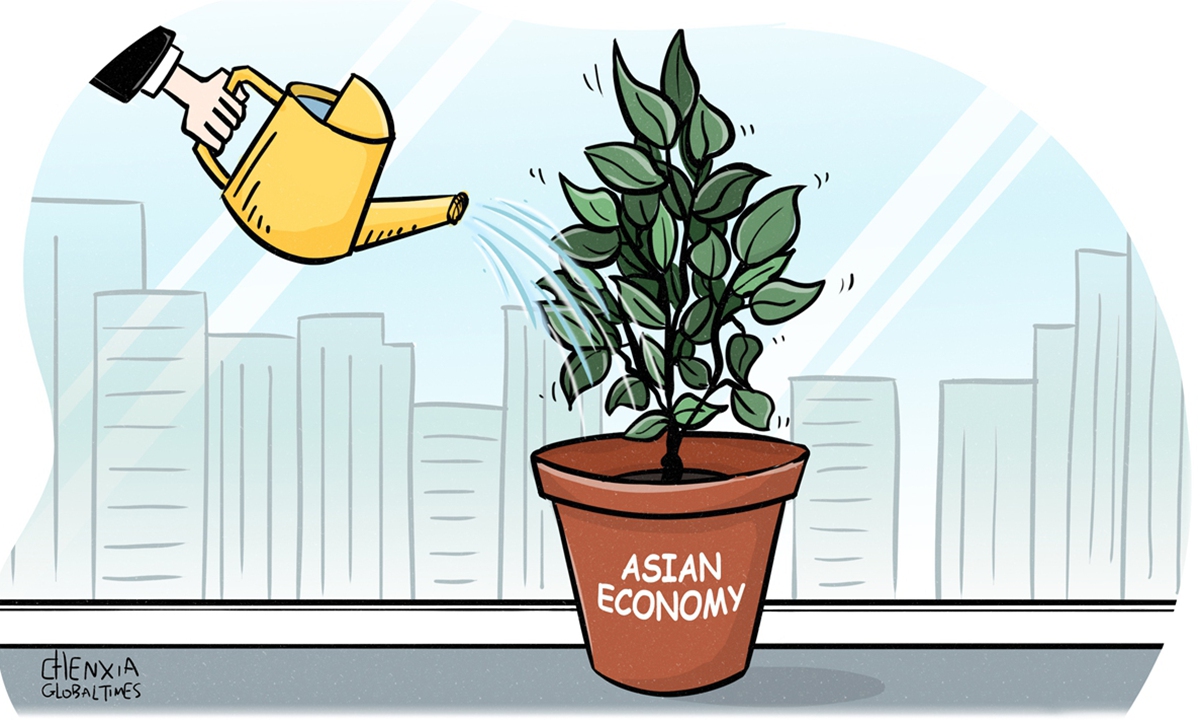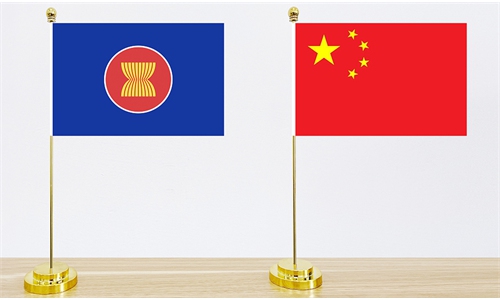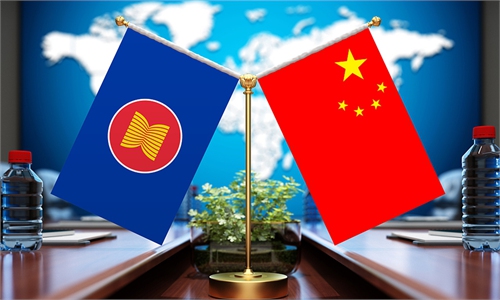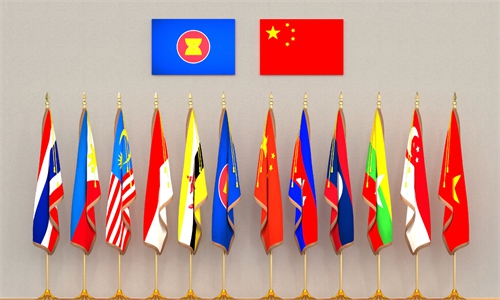
Illustration: Chen Xia/GT
Editor's Note:
The world today is far from being tranquil. Facing a choice of the times between solidarity and division and cooperation and confrontation, the international community expects Asia to play a leading role. ASEAN countries are successively hosting three important multilateral meetings including the ASEAN Summit and Leaders' Meetings on East Asia Cooperation, the G20 Summit, and APEC Economic Leaders' Meeting. Focusing on the "Asian Moment," the Global Times will invite several Chinese and foreign scholars to discuss how Asian countries can contribute "Asian wisdom" to the world amid unprecedented changes unseen in a century. This is the second of this series.
While the "Shift from West to East" has been the talk of the world the past decade, now the "Asian Moment" is the catchword. The geoeconomic shift has become a geostrategic shift as Asia has become a global meeting place for the world to converge, talk and hopefully solve mankind's urgent and primordial crisis of the times.
This November, three major regional and international meetings of world leaders are being held in Asia- APEC 2022 with its theme "Open. Connect. Balance." hosted by Thailand, ASEAN with the theme "Stronger Together" hosted by Cambodia, and G20 2022 with the theme "Recover Together, Recover Stronger" hosted by Indonesia. All three call for nations to unify and harmonize.
Today, Asia comprises 45 percent of the global economy and is projected to exceed 50 percent of global output by 2030. This ideal can be achieved only if the global environment of peace and stability can be ensured and any breakdown in the dialogue among diverging international perspectives and powers are averted.
The role of peacemaker landed on Asia's lap as the region has been a sea of calm and tranquility over the past decades despite countless provocations from predatory external forces, surviving a one-in-one hundred years pandemic crisis with the fewest number of casualties before pushing forward with economic recovery in its wake.
Asia's privileged place today emanated from China's powerful but peaceful rise that has uplifted the region, ASEAN, in particular, has generated good will with its message of a "win-win" world and its vision of a "Community of shared Future for Mankind" incarnated in the Belt and Road Initiative and multilateral platforms, such as the BRICS, RCEP, SCO in a multipolar world.
In the Philippines, the inspiration from China and Asia's rise and its relevance in international affairs has led to organizing of an "Asian Century Philippines Strategic Studies Institute," a broad gathering of scholars, retired military officers, students and media to pursue the dream of the "progressive and equitable world" ushered in by Asia with China and ASEAN at its core.
The West pursuing its predatory appetites from the Age of Colonialism and Imperialism and from the Cold War period, dug itself a historic hole of turmoil and endless wars again in this 21st century. The Asian Moment now offers the West salvation from its own folly by presenting common ground for all to restart communication and dialogue.
Asia has shown the way to the dialogue and harmony of nations and civilizations with its appreciation of the art of "win-win" mutualism. Asians have the inborn appreciation of the benefits from universal cooperation and collective efforts to overcome common challenges. Mankind is perpetually tested by turbulent powers of nature and the predatory aspects of human nature.
China and ASEAN provide the model to establish peace and effective collaboration successfully under the most trying circumstances. Central to ASEAN's success is China's respectful diplomacy with ASEAN thus overcoming misunderstandings created by external factors stirring the tempest in the teapot of the South China Sea.
With foresight and patience, China has pursued its concerns while considering the interests of all other nations, striving for "win-win" solutions while progressively utilizing its power and economic clout to develop and not exploit, the economic potential of all countries for every nation's prosperity and peace. China has become a source of great economic advancement for all ASEAN nations.
In the midst of this Asian success, there is a lurking danger which the Philippines must own up to. The presence of foreign military troops and bases in the Philippines threatens the peace of the region even as it violates the Philippine Constitution. Despite five US bases already in place it seeks five more while its troops conduct military exercises near Taiwan and the disputed territorial areas near Palawan.
Article XVIII, Section 25 of the Philippine Constitution states: "foreign military bases, troops, or facilities shall not be allowed in the Philippines except under a treaty duly concurred in by the Senate and, when the Congress so requires, ratified by a majority of the votes cast by the people in a national referendum held for that purpose, and recognized as a treaty by the other contracting State." These conditions have never been fulfilled. Acquiescence of elements within the Philippine government is the sad legacy of US neo-colonialism.
The challenge to struggle to clean out foreign military bases and troops is a domestic struggle the Philippines must win, to ensure peace and fulfill Philippine commitment to ASEAN's Zone of Peace, Freedom and Neutrality (ZOPFAN) declaration and the Southeast Asia Nuclear Weapon-Free Zone (SEANWFZ) treaty.
The Philippine's leadership in cooperation with China has already led to an over 50 percent public perception of "Good China" through China's positive contribution in infrastructure and massive assistance it provided during the COVID crisis and regular natural disasters. No fear means no justification for the foreign troops, now it's the political struggle that counts. We dare not fail the cause of peace in Asia and the World.
The author is founder of a Manila-based think tank Philippine BRICS Strategic Studies. opinion@globaltimes.com.cn



